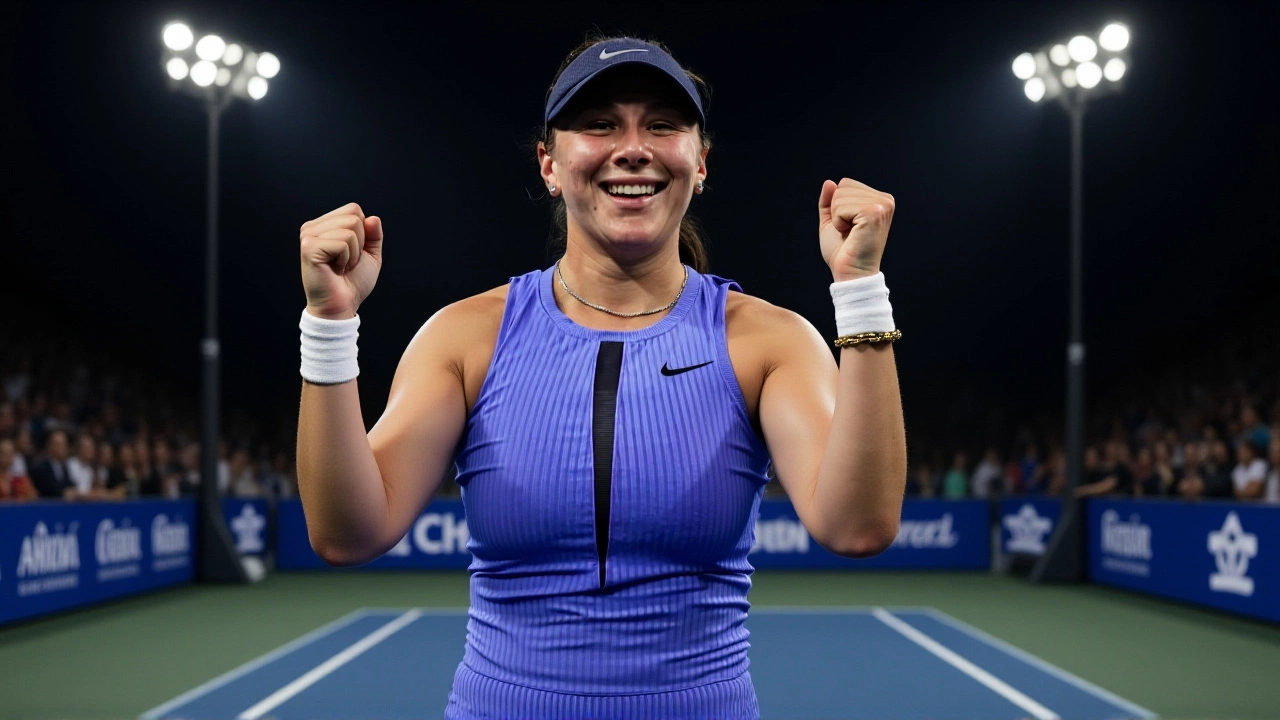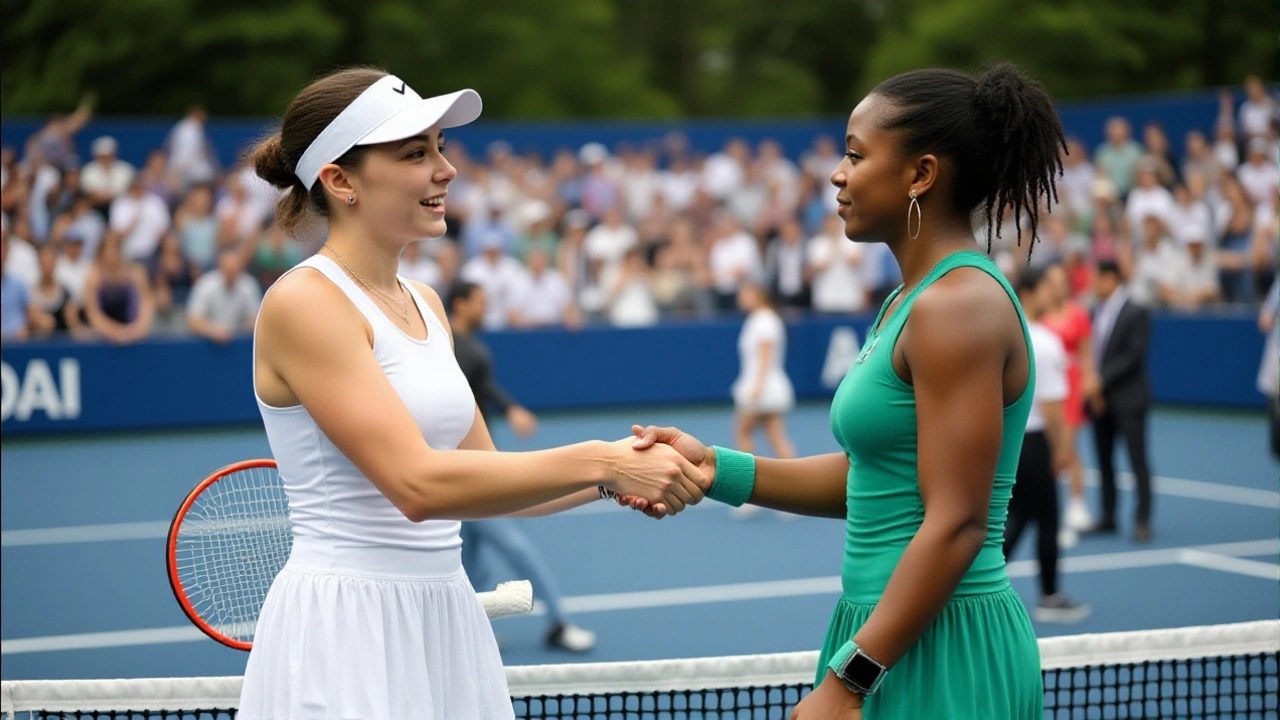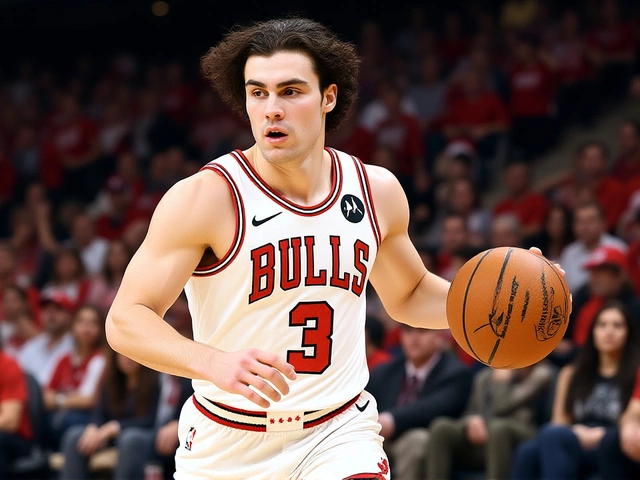When Amanda Anisimova, American tennis player hammered Coco Gauff, the defending champion, 6‑1, 6‑2 in the China Open semifinals on , the tennis world stopped for a beat. The match unfolded on the hard courts of the Beijing venue in just 58 minutes, ending Gauff’s title defense and propelling Anisimova into her first China Open final. The upset was more than a scoreline; it was a statement of intent from a third‑seeded underdog who delivered the best tennis of her life.
Historical Context: The Rise of a New Contender
Both players entered the 2025 China OpenBeijing with high expectations. Gauff, seeded second, had captured the title in 2024 after a string of deep runs on the WTA circuit. Her aggressive baseline play and powerful serve made her a fan favorite and the odds‑on favorite for a repeat. Anisimova, seeded third, had been climbing back from a wrist injury that sidelined her for most of 2023. Since her return in early 2024, she had notched wins over top‑ten players but had never broken through to a Premier‑level final. The semifinal represented her biggest test yet, and the hard courts in Beijing—known for rewarding flat, powerful strokes—seemed tailor‑made for a showdown.
Match Details: How the Knockout Punch Landed
The first set began with Gauff serving a modest 45‑km/h ball that fell short of her usual speed. Anisimova answered with a blistering forehand winner down the line, a shot she would later describe as her "knockout punch" that set the tone. By the third game, she was leading 3‑0, and Gauff’s rhythm appeared shattered.
Statistically, Anisimova was dominant: 19 first‑serve points won, 12 aces, and a 0.96 break‑point conversion rate. Gauff, by contrast, managed only three breaks of serve across the match, none of which held. The rally count favored Anisimova 78‑46, highlighting her ability to dictate play from the baseline.
That night, the crowd, a mix of local fans and international journalists, erupted each time Anisimova sealed a point with a crisp, down‑the‑line winner. The atmosphere reminded observers of a boxing match—each point felt like a round, and the underdog was clearly landing the knockout.
Reactions from the Bench and Beyond
Speaking moments after the match, Anisimova’s coach Rick Bliss grinned broadly. "She played with the confidence of a champion today," he said, his voice barely audible over the cheering crowd. "The mental toughness she showed—staying aggressive, never looking back—was the difference." Gauff, visibly disappointed, acknowledged Anisimova’s performance. "I gave her everything I had, but she was just too solid. I need to regroup and figure out how to bring my game back to the level I know I can play," she remarked in the post‑match interview. International tennis analysts echoed the sentiment. Former world No. 1 Maria Sharapova tweeted, "Anisimova’s 58‑minute masterclass proves she belongs in the conversation for the biggest titles this year."
Impact: What This Means for the WTA Landscape
The win reshapes the narrative for the remainder of the 2025 season. With the Women’s Tennis Association (WTA) ranking points at stake, Anisimova catapulted from No. 12 to a projected top‑5 spot, depending on the final outcome. The surge also adds a fresh storyline for broadcasters, who now have a new contender to market as a potential Grand Slam threat.
For Gauff, the loss could be a catalyst. Her team hinted at a possible coaching tweak and a focus on improving serve consistency—areas where the Beijing match statistics showed vulnerability. If she rebounds, the rivalry could become one of the season’s defining arcs.

Future Outlook: Final Showdown and Beyond
Tomorrow’s final pits Anisimova against an as‑yet‑unknown opponent—likely the fifth seed, Elena Rybakina, who has thrived on the same fast courts. Analysts are already speculating about a potential third‑set thriller, but if Anisimova’s current form is any indication, she could very well clinch her first Premier‑level title. Beyond Beijing, the victory could influence seedings at the upcoming Australian Open in January 2026, where a top‑four ranking would grant a first‑round bye. The psychological edge of beating a defending champion on a big stage cannot be overstated; it often translates into confidence that carries through to Grand Slam events.
Key Takeaways
- Amanda Anisimova defeated Coco Gauff 6‑1, 6‑2 in 58 minutes.
- The match took place at the China Open 2025 hard‑court event in Beijing.
- Coach Rick Bliss praised Anisimova’s mental fortitude and technical execution.
- The win propels Anisimova into the WTA top‑5 and sets up a finals clash with Elena Rybakina.
- The result reshapes the 2025 season narrative, adding a fresh contender for upcoming majors.
Frequently Asked Questions
How does Anisimova’s victory affect her world ranking?
The win awards Anisimova 470 WTA points, likely moving her from No. 12 to inside the top‑5. The exact spot will depend on the final’s outcome and other players’ results in the same week.
What were the key statistics that highlighted Anisimova’s dominance?
She hit 12 aces, converted 96% of break points, and won 78% of total points on her own serve. Gauff managed only three game wins and could not break Anisimova’s serve at all.
Who is Anisimova likely to face in the China Open final?
The most probable opponent is fifth seed Elena Rybakina, who defeated her quarter‑final rival in straight sets earlier in the day. Rybakina’s powerful serve makes her a formidable challenger.
What does this result mean for Coco Gauff’s season?
The loss is a setback, but Gauff remains a top‑10 player. She is expected to adjust her serve strategy and may focus on upcoming indoor events to regain momentum before the year‑end championships.
Will Anisimova’s performance influence future WTA marketing?
Yes. Broadcasters and sponsors are keen to spotlight rising stars. Anisimova’s breakthrough adds a fresh narrative that could be highlighted in promotions for the upcoming Australian Open and other marquee tournaments.




